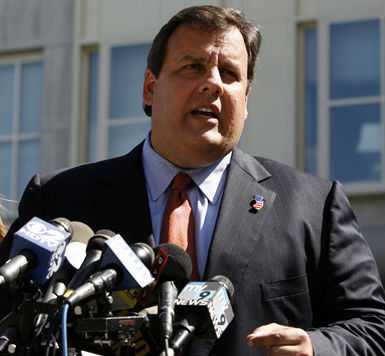Back in 2011, when New Jersey Gov. Chris Christie signed into law the state’s first round of pension reforms, a curious thing happened: state workers started heading for the exits. And they weren’t leaving for the weekend—they were leaving for good.
In fact, state workers retired in unprecedented numbers in 2010 and 2011, when the pension proposal was being discussed and passed through the legislature. Under the plan, workers have to contribute more of their paychecks to the pension system.
Now, Gov. Christie has announced he’s planning to propose a new set of pension reforms—and he’s made it clear that the benefits of workers will not come out unscathed.
With that news circulating, New Jersey is reporting that another wave of retirements is already in the making. The Star-Ledger reports:
As Gov. Chris Christie bangs the drum for a second round of pension reform in New Jersey, public officials and union leaders are bracing for another wave of public workers rushing to retire.
Employees in state and local government headed for the door in record numbers at the beginning of Christie’s first term, thanks in part to laws passed by the governor and state lawmakers asking public workers to pay a larger share of their health and pension costs. More than 20,000 retired in 2010, followed by 19,500 the next year.
After slowing the next two years, the pace of public worker retirements is picking up again, according to state Treasury Department figures.
A total of 11,916 employees are scheduled to retire through the end of this month — a nearly 9 percent spike from the same point in 2013. If the pace continues, about 17,000 may file papers by the end of the year. A total of 15,700 public workers retired last year.
The change comes as Christie gets ready to introduce further changes to the pension system, which is facing $40 billion in unfunded liabilities.
The Republican governor, a potential 2016 presidential candidate who rose to popularity partly because of his pension fights with public worker unions, said the previous changes didn’t go far enough. He has put curtailing the costs of public employee benefits at the top of his summer agenda, suggesting the state could go bankrupt without more action.
Union leaders have offered up various explanations for the spike. Some say the retirements are indeed caused by the virtual guarantee that workers will see their benefits decrease if they don’t lock them in by retiring.
But other union officials claim that the surge in retirements can be chalked up to random fluctuations. From NJ.com:
Some union leaders say more public workers may be planning to retire out of fear they could see their pensions and health benefits cut if they don’t get out now.
“There’s a feeling of unease about what’s going to happen,” said Pat Colligan, president of the state Policemen’s Benevolent Association. “People have left the past couple of months because they’re afraid. And there are people who have their finger on the retirement button.”
But Steve Baker, a spokesman for the New Jersey Education Association, the state teachers union, said he’s not convinced this year’s 9 percent increase in retirements was caused by Christie’s warnings, saying numbers fluctuate from year to year.
“They may be on the higher end of the range, but they’re certainly within the range,” he said.
Hetty Rosenstein, director of the state chapter of the Communications Workers of America, said she would be upset if Christie’s talk caused more public workers to retire in the coming months.
“You have people who have dedicated their life to public service,” said Rosenstein, whose union represents more than 40,000 state workers in New Jersey. “It would be really terrible and shameful if people make their retirement decisions based upon fear that after 30 years their retirement isn’t secure.”
Among public workers, retirements for teachers and non-uniformed government workers are both up 12 percent so far this year, while police and firefighter retirements are down 14 percent. Retirements for the State Police dropped from 145 to 83, the figures show.
In the decade before Christie was governor, public workers retired at a rate of 13,656 a year. Since he took office, the clip is at 17,602 — a 29 percent increase.
Bill Dressel, executive director of the New Jersey League of Municipalities, said part of the problem is that Christie has yet to unveil any details of his plan to revise public worker benefits.
“There’s always fear of the unknown,” Dressel said. “There’s not a clear message coming from our state policymakers.”
Christie is currently holding a series of town hall meetings around the state addressing pension issues. He has not announced specific details of his latest pension reform proposal, but he says he will release the proposal to the public by the end of summer.










